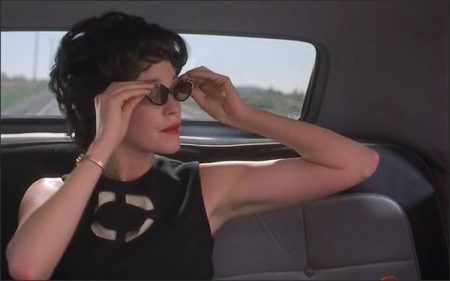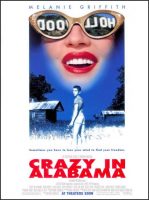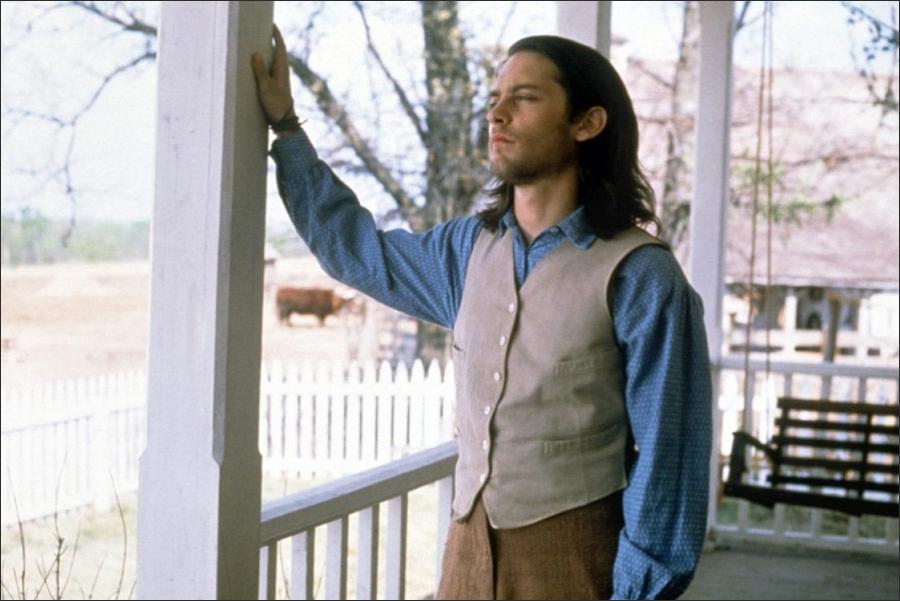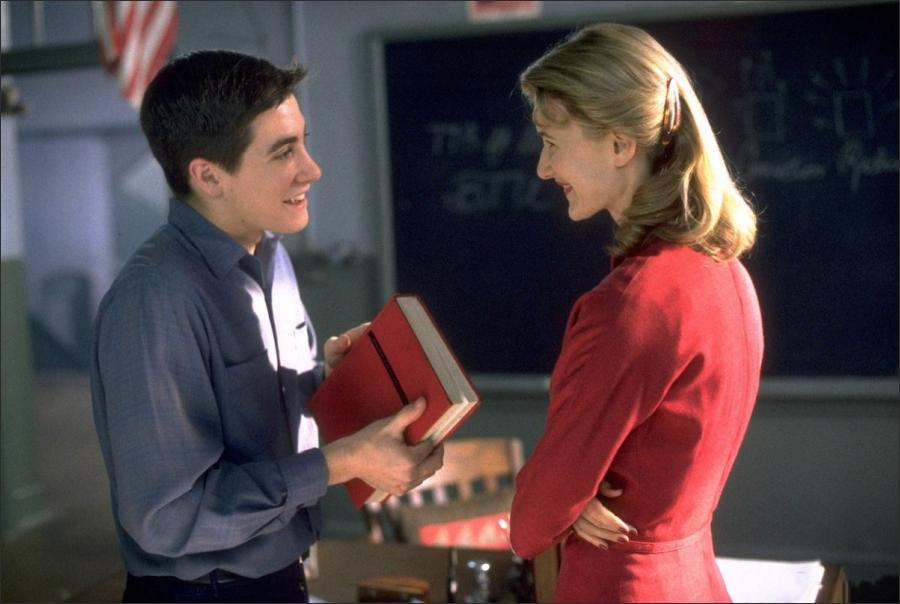Taglines: Sometimes you have to lose your mind to find your freedom.
Crazy in Alabama movie storyline. Peter Joseph “Peejoe” Bullis (Lucas Black) lives in a small town in Alabama in 1965, at the height of the Civil Rights Movement. He becomes involved with a group of black students protesting the town’s racially segregated municipal swimming pool, leading to a protest that explodes into deadly violence.
A young black boy, Taylor Jackson, is killed by the town sheriff (Meat Loaf). Peejoe, the only witness, is pressured by the sheriff to keep it quiet. However, Peejoe has learned from the example of his free-spirited Aunt Lucille Vinson (Melanie Griffith), who has killed her abusive husband and is headed for Hollywood, where she is convinced that television stardom awaits her.
Lucille takes her husband’s head everywhere she goes in a black hat box[1] and looks forward to Hollywood promises. When the head is discovered by the hostess of a party, Lucille tries to get rid of the head by throwing it off the Golden Gate Bridge. Two policemen, thinking she is about to jump over herself, open the hat box and discover the head inside. She is arrested and escorted back to Alabama for her trial, where she is given a warm welcome by her town.
Crazy in Alabama is a 1999 comedy-drama film directed by Antonio Banderas, written by Mark Childress (based on his own 1993 novel of the same name), and starring Melanie Griffith as an abused wife who heads to California to become a movie star while her nephew back in Alabama has to deal with a racially motivated murder involving a corrupt sheriff. The movie was filmed primarily in and around Houma, Louisiana with locations in Schriever, Chackbay, and New Orleans, Louisiana as well as Las Vegas, San Francisco, and Los Angeles.
Film Review for Crazy in Alabama
“Crazy in Alabama” is an ungainly fit of three stories that have no business being shoehorned into the same movie. The first one is familiar: Events seen through the eyes of a young boy in a small town, circa 1965, who recalls, “and after that day nothing was ever the same again.” This point of view could have worked with either of the other two stories, but not both at once: (1) Ditzy dame snaps after years of cruel husband, leaves for Hollywood to find fame and fortune, and (2) local black boy becomes the focus of a civil rights crusade.
It is a symptom of the movie’s confused agenda that although the outcome produces two trials, it is the ditzy dame whose fate is settled onscreen, and not the man charged with a crime against a black boy. One wonders whether the eccentric local judge, who has such sympathy for a sexy brunet who chops off her husband’s head, will be such a humanitarian when it comes judging a racist white sheriff, in a town with no black voters.
The head-chopping is announced almost in the first scene. Melanie Griffith plays Lucille, a woman who is clearly insane, and who kills her husband, decapitates him to be sure he is dead, and leaves for Hollywood to be discovered. She takes his head along, and frequently hears his voice, in scenes that are like a comic reprise of Peckinpah’s “Bring Me the Head of Alfredo Garcia.” Her journey takes her through New Orleans and the Southwest, where she slinks and flirts her way out of arrests, and finally to Hollywood, where her career takes an unexpected turn.
Meanwhile, through the eyes of young Peejoe (Lucas Black), we see not only his loony Aunt Lucille but also the story of Taylor Jackson (Louis Miller), a black boy about his same age, who wants to swim in the segregated local pool and is warned off by the sheriff (Meat Loaf Aday) with the thought-provoking line, “You are trespassing on public property!” His determination leads to a local civil rights struggle, a death, and a visit from Martin Luther King, and for young Peejoe, yes, after that summer nothing would ever be the same again.
The film is the directorial debut of the actor Antonio Banderas, Melanie Griffith’s husband, who does a competent professional job, although at the outset they should have realized that each of their main stories would curdle the other one. When a boy is dead in a civil rights case, that kind of takes the comedy out of the sexy nutcase defending herself in court. Nor is her self-justification very persuasive: “You spend all day making a beautiful meal for your husband and he comes home and gobbles it down and a little piece of you dies.” Yeah, and a big piece of him.
Crazy in Alabama (1999)
Directed by: Antonio Banderas
Starring: Melanie Griffith, David Morse, Cathy Moriarty, Lucas Black, Meat Loaf, John Beasley, Richard Schiff, Sandra Seacat, Rod Steiger, Elizabeth Perkins
Screenplay by: Mark Childress
Production Design by: Cecilia Montiel
Cinematography by: Julio Macat
Film Editing by: Maysie Hoy, Robert C. Jones
Costume Design by: Graciela Mazón
Set Decoration by: Robert Greenfield
Art Direction by: Michael Atwell
Music by: Mark Snow
MPAA Rating: PG-13 for some violence, thematic material, language and a scene of sensuality.
Distributed by: Columbia Pictures
Release Date: October 22, 1999
Hits: 153






